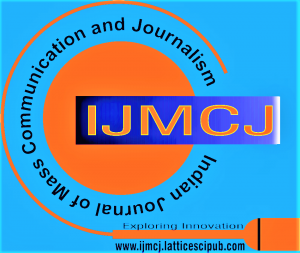![]()
Echo Chambers and Polarization: The Role of Social Networks in Shaping Beliefs in India
Sumana Mitra1, Abhishek Das2
1Sumana Mitra, Research Scholar, Department of Adult, Continuing Education & Extension, Jadavpur University, Kolkata, (West Bengal), India.
2Prof. (Dr.) Abhishek Das, Assistant Professor of Adult, Continuing Education & Extension, Jadavpur University, Kolkata, (West Bengal), India.
Manuscript received on 05 March 2025 | First Revised Manuscript received on 01 April 2025 | Second Revised Manuscript received on 17 May 2025 | Manuscript Accepted on 15 June 2025 | Manuscript published on 30 June 2025 | PP: 17-20 | Volume-4 Issue-4, June 2025 | Retrieval Number: 100.1/ijmcj.D112104040625 | DOI: 10.54105/ijmcj.D1121.04040625
Open Access | Editorial and Publishing Policies | Cite | Zenodo | OJS | Indexing and Abstracting
© The Authors. Published by Lattice Science Publication (LSP). This is an open-access article under the CC-BY-NC-ND license (http://creativecommons.org/licenses/by-nc-nd/4.0/)
Abstract: The rise of social networks has significantly influenced public discourse, contributing to the formation of echo chambers that reinforce ideological divisions. This study examines the role of social networks in shaping political and social beliefs in India. Employing a mixed-methods approach, this research integrates quantitative surveys with qualitative discourse analysis to assess the extent of polarization. Agendasetting theory and social identity theory provide the theoretical foundation for understanding how online communities amplify biases. The findings highlight how algorithmic curation, selective exposure, and group identity reinforce beliefs. The study proposes policy interventions to mitigate Polarization while fostering inclusive dialogue.
Keywords: Echo Chambers, Polarization, Social Networks, Belief Formation, India.
Scope of the Article: Emerging Trends in Journalism
